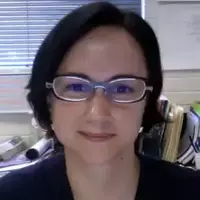What are we doing to assess student learning at the program level?
-- Trinity - survey alums that are 2, 4, and 6 years out; exit exam for seniors (has not seemed to work - students are nervous, but the exam is low-stakes, but they need it to graduate)
-- CWU - pre- and post- using a subset of the GLE questions, but they do worse (or at least, not better) on the post-, maybe because the
-- George Mason - pre- and post-, also not a good result, sometimes students that do really well coming in do worse going out
-- Chemistry at UW is looking back at 15 years of data, including persistence, DFW rates, etc.
-- Assessing the program is not just assessing the majors - includes the Gen Ed courses. How are we doing in those?
-- In some places, Gen Ed is assessed as part of the department, some are assessed as part of the Gen Ed program
-- CWU - quantitative skills and field notebook skills are assessed on a more regular basis, and driven by faculty interests in building those skills. Requires faculty talking to each other about threading the skills through the curriculum.
Have we looked at confounding variables? Would be a good way to see if it's not just students doing worse (could be SES, etc.)
-- At Carleton, use TRiO status
-- Institutional Research helps at institutions like Carleton and UW
-- Need to have support outside of the department
Challenges:
-- statistics of small numbers - most geo programs are pretty small, so it's hard to use data to make decisions about the program
-- we seem to do a poor job of moving fundamental concepts from intro courses throughout the curriculum
-- Trinity - survey alums that are 2, 4, and 6 years out; exit exam for seniors (has not seemed to work - students are nervous, but the exam is low-stakes, but they need it to graduate)
-- CWU - pre- and post- using a subset of the GLE questions, but they do worse (or at least, not better) on the post-, maybe because the
-- George Mason - pre- and post-, also not a good result, sometimes students that do really well coming in do worse going out
-- Chemistry at UW is looking back at 15 years of data, including persistence, DFW rates, etc.
-- Assessing the program is not just assessing the majors - includes the Gen Ed courses. How are we doing in those?
-- In some places, Gen Ed is assessed as part of the department, some are assessed as part of the Gen Ed program
-- CWU - quantitative skills and field notebook skills are assessed on a more regular basis, and driven by faculty interests in building those skills. Requires faculty talking to each other about threading the skills through the curriculum.
Have we looked at confounding variables? Would be a good way to see if it's not just students doing worse (could be SES, etc.)
-- At Carleton, use TRiO status
-- Institutional Research helps at institutions like Carleton and UW
-- Need to have support outside of the department
Challenges:
-- statistics of small numbers - most geo programs are pretty small, so it's hard to use data to make decisions about the program
-- we seem to do a poor job of moving fundamental concepts from intro courses throughout the curriculum
11930:32580







